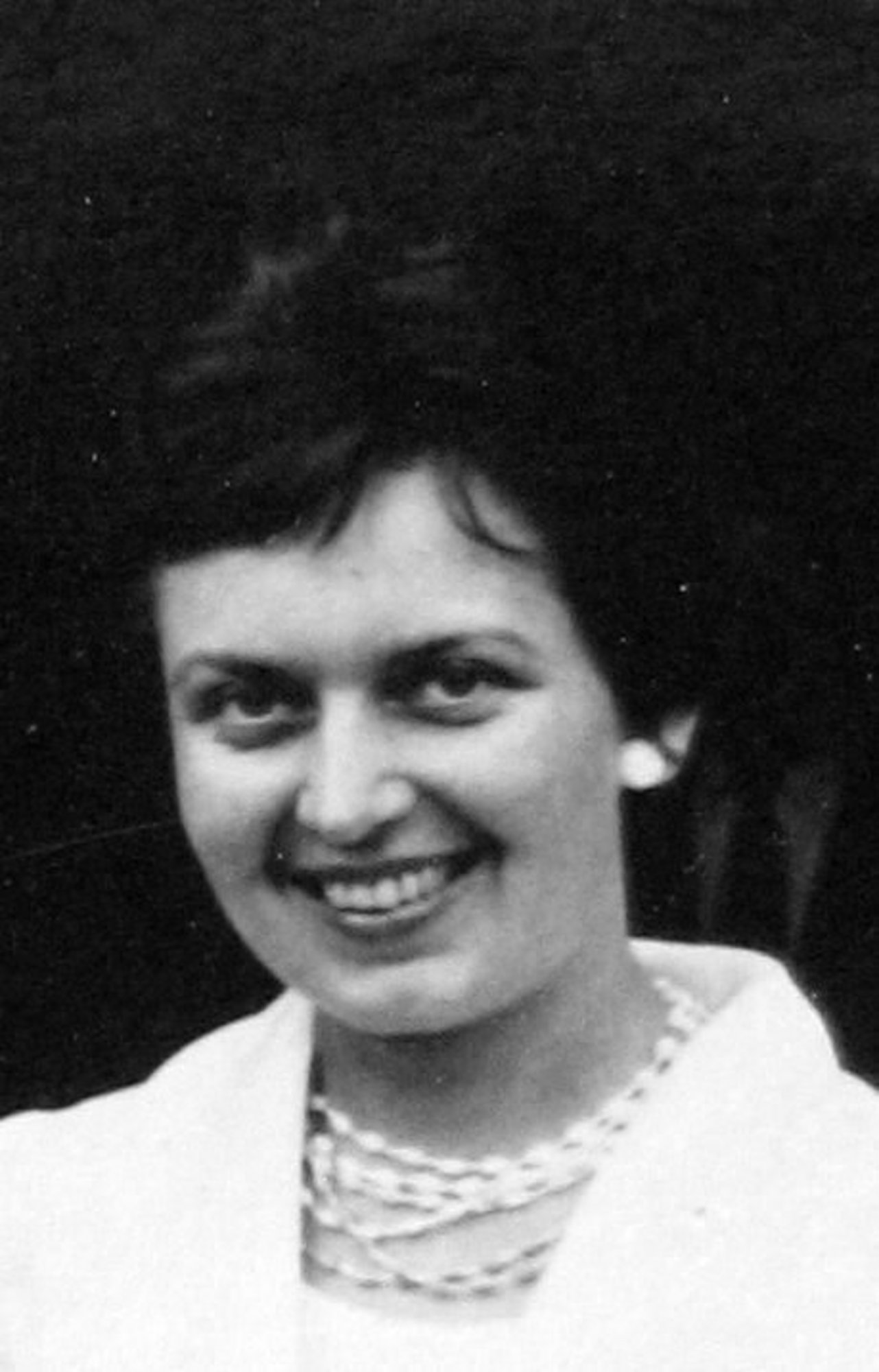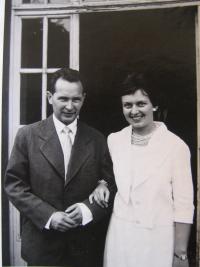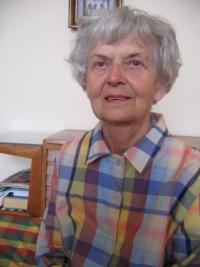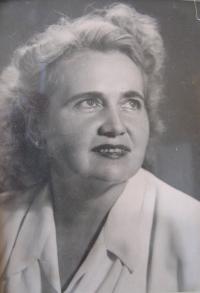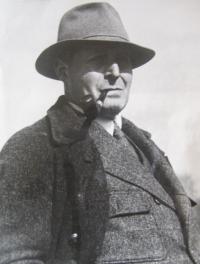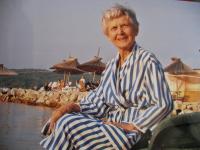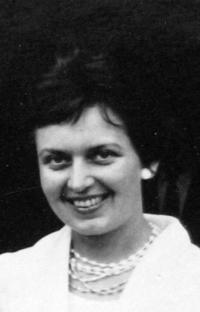Although I didn’t say anything, the expression on my face must have irritated them
Ludmila Naďa Hübnerová was born on October 8, 1926 in Prague. Her father, Vilém Michel, was a hydraulic engineer and a governmental counselor. Her mother, Lída Michelové, (born Šalátová) came originally from Croatia, but was of Czech extraction. Her education, however, took place in Croatia and later on also in Italy (she studied opera singing in Italy). After marriage, the family stayed in Prague, where Ms. Naďa attended primary and later grammar school. After graduation, she enrolled in law school, but studying law didn’t satisfy her so she abandoned law studies after a year. She further studied languages and started to work in an English aviation company. Before her arrest, she got married with René Mašek. She was arrested on March 23, 1951. She was held in police custody for nearly a year without a trial. She spent this time in the infamous Prague prison of Pankrác. She didn’t experience any beating but was in solitary confinement, frequent “corrections”, halved daily food rations, incredibly hard beds etc. The main session of the trial took place on April 9, 1952. She was on trial together with Miroslav Komárek, Jaroslav Libeňský, (whom she didn’t know at all) and her first husband René Mašek. The verdict was 3 years of imprisonment for assistance in espionage according to paragraph 5 of the law nr. 117/52 and for the criminal offense of espionage according to paragraph 5 law nr. 231/48. After the verdict, the prosecuting attorney immediately gave a notice of appeal as the sentence seemed too lenient to him. Therefore, in September 1952, there was another trial, in which the attorney actually got his way. The sentence was augmented from 3 to 6 years imprisonment. After the verdict, she was transferred to Rakovník, where she worked in a ceramics works (the so-called “šamotka”). She then worked as a tile manufacturer. From June 1953 to September 1953 she was placed in Gottwaldov working in a rubber-works that produced rubber boots. The last place of her imprisonment was Minkovice near Liberec, from where she was set free on April 14, 1954. During her time in prison, the most daunting event was the news about her father’s death. She herself describes that moment as the worst and most painful in all of her life. Life after discharge from prison was rather normal. She stayed in touch with her girl-friends from prison, she didn’t talk too much about her past. After she met her second husband Josef Hübner, who worked as a planning engineer, happier times came. She gave birth to two sons: the older Vilém and the younger Richard. The focal point of her life became her family. Her husband, Mr. Hübner, lived long enough to see the end of the communist regime but he passed away after a few free years. Freedom brought the intuitive joining of the Confederation of Political Prisoners and regular meetings with other political prisoners in Žofín. She has enjoyed meeting old friends here ever since. As the years passed, however, the ranks of her old friends grew scarce and at this year’s meeting of the political prisoners, she didn’t recognized any more familiar faces in the aula. When she looks back at her years in prison, she realizes that they gave her the unique opportunity to meet very special people. These were people that she in all probability wouldn’t normally have had the chance of meeting. Only the years in prison enabled her to fully appreciate her idyllic youth and the spirited environment, in which she grew up. As far as forgiveness is concerned, she perceives her imprisonment at an impersonal level. It happened because of the regime and the people who served the regime. These people were of a totally different nature than she is, but she doesn’t feel any hatred for them.
